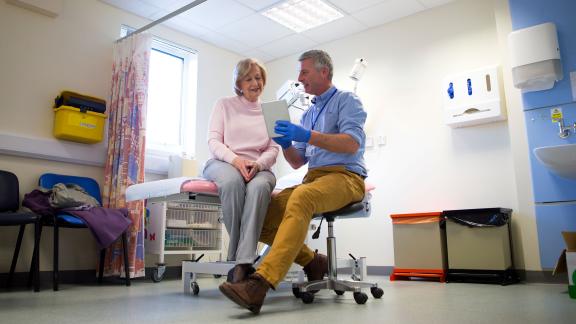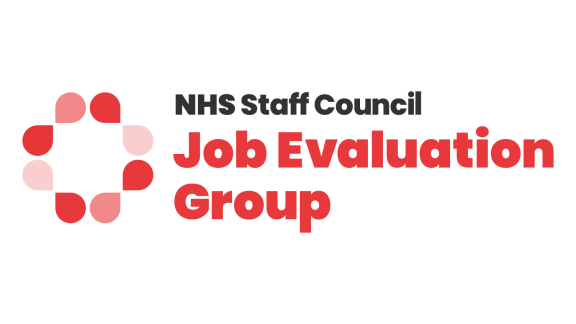Recruiting and promoting specialist grade doctors

Key benefits and outcomes
- The trust successfully recruited and promoted doctors onto the specialist grade.
- The organisation worked to reduce the number of doctors on long-term fixed term local contracts.
- The trust worked to educate and improve knowledge amongst the workforce of the different SAS contracts and roles.
- The trust promoted SAS as a career choice amongst their existing medical workforce.
What the organisation faced
Previously, Shrewsbury and Telford NHS Trust had not overly promoted the specialist role in its organisation, as there was a lack of education on the benefits and understanding of the specialist role.
The trust was searching for a workforce solution that created more permanent roles, rather than continuing to pay long-term fixed-term contracts to locally employed doctors (LEDs).
The trust was aware that some consultants did not understand the grade and had little knowledge of how the specialist role integrates into service.
The trust also found that some doctors, in particular the international doctors, were not aware or familiar with the difference in NHS contracts.
What the organisation did
The trust has been reviewing its current doctors and identifying those on long-term LED contracts.
The trust has been identifying opportunities within the current workforce and encouraging transfer to the specialist contract.
The trust has found success in recruiting doctors as locums, supporting them throughout their fixed-term contract, and then reviewing when it is coming to an end. For the doctors who are showing excellence and working well within the trust, they are offered the opportunity to apply for a specialist contract if they meet the specialist framework capabilities and then are also supported through the CESR qualification.
To help build engagement and understanding of the SAS doctor role across the organisation it held a SAS doctors away day. Every SAS doctor was invited by the trust to build experience and network with each other. The away day focused on highlighting the different contracts, and the benefits of each and the trust invited guest speakers to host different talks all relating to the role of specialty and specialist within the trust.
The trust has also worked to recognise the work and contribution of senior specialty doctors who are working autonomously and offer them the opportunity for career progression.
Through internal progression routes and recruitment via locum contracts, the trust has made the specialist grade attractive to those who want career progression, but no specialist registration.
The trust has seen success and support from working with internal stakeholders such as its Local Negotiating Committee (LCN) and its SAS advocate.
The medical staffing department is working with the LNC towards an increase in SAS doctors across the trust. The LNC is supportive of the trust's progress in the recruitment and promotion of the 2021 specialist contract. However, the LNC does think that more can be done, despite continued success in the number of specialist grades employed.
The trust identified the SAS advocate as a positive driving force towards successful recruitment. The SAS advocate has been advocating, networking, and bringing forward the SAS point of view to the medical staffing department. She has been exploring and discussing the different types of careers and has been helping SAS doctors with understanding job planning. She also assisted with the standardisation of overseas incremental experience within the trust.
The trust cited the SAS advocate as being a point of expertise for themselves and the medical workforce. The most senior consultants can approach the SAS advocate to help with any questions they may have about the specialist grade. The workforce is appreciative of the position of the SAS advocate, she is known as a knowledgeable and approachable person within the trust.
The organisation has cited that most specialist-grade doctors recruited into the trust are done through internal recruitment and have developed a standardised process for calculating experience with their SAS advocate. Through using the standardised approach to calculating experience, combined with giving expertise to recruiting managers on the different grades available the trust has been able to successfully recruit specialists.
Giving expertise to recruiting managers, gives them the knowledge and further opportunity to explore all grades available for recruitment rather than the ones they already understand.
Results and benefits
The trust has highlighted the success of the doctors they have recruited for the specialist grade. Many have taken on internal leadership roles, such as patient-safety lead.
The organisation highlighted the success of one doctor they recruited as a specialty doctor, was promoted to a specialist, and will shortly have completed their CESR. The trust has found the specialist role integral to building a sustainable workforce of the future.
Overcoming obstacles
The trust cited a lack of education on the benefits and understanding of the role in the trust as a barrier to the success of the specialist role.
The trust is seeing that the challenges that it has faced are being combatted by more education among the workforce on the differences in SAS contracts and how they integrate into the system.
A further challenge that has been experienced is around promotion and leaving gaps in the rota. There are some specialties where this issue is less evident as it is easier to recruit, such as the emergency department and in anaesthetics.
Take-away tips
The trust would recommend to others to continue to promote the grade and offer opportunities to existing members of the workforce.
Building relationships with internal stakeholders is integral to increase awareness across the organisation of the specialist grade.
Regularly review workforce data to identify which contract doctors are on and if there are any who would be eligible for specialist doctor posts.



